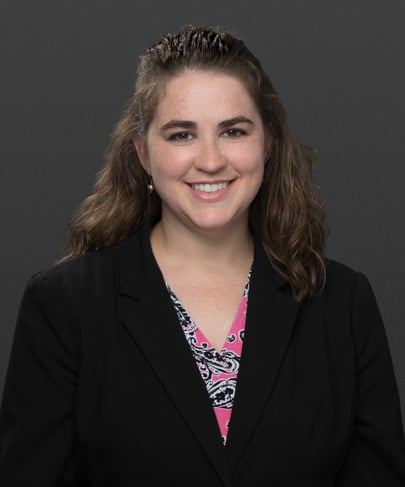Governor Whitmer Signs COVID-19 Legislation Applicable to All Employers
DOWNLOAD PDF- Delmastro, Lina R. Deromedi, David R. McDonald, Christina K.
- Industry Alerts
Click “Subscribe Now” to get attorney insights on the latest developments in a range of services and industries.
In the aftermath of the Michigan Supreme Court’s recent ruling that Governor Whitmer did not have legal authority to issue her Executive Orders, the Michigan Legislature and the Governor’s office have reached an agreement on legislation that covers some areas which were subject to those Orders.
On October 22, 2020, the Governor approved three important pieces of COVID-19 Legislation. As COVID-19 cases are rising again while we head into typical flu season, all three work together to set certain standards for employers and employees in managing workplace COVID-19 matters.
HB 6030 (Public Act 236 of 2020)
House Bill 6030 creates a new act – the COVID-19 Response and Reopening Liability Assurance Act – “to provide minimum requirements for tort claims alleging exposure to COVID-19; establishing liability standards for claims alleging exposure to COVID-19; and precluding liability if conduct complies with regulations or orders.”
Principally, the law provides that any person who complies with all federal, state, and local rules, regulations, executive orders, and agency orders related to COVID-19 is immune from liability for a claim for damages allegedly caused by COVID-19 exposure or potential exposure. Thankfully, an “isolated, de minimis deviation from strict compliance” that is not related to the alleged injuries will not defeat this immunity.
HB 6031 (Public Act 237 of 2020)
HB 6031 applies the immunity of House Bill 6030 to the employment setting. It grants employers immunity for an employee’s employment-related COVID-19 exposure if the employer was following the law. More specifically, this law provides that an employer is not liable for an employee’s COVID-19 exposure if, at the time of the exposure, the employer was complying with all federal, state, and local statutes, rules, and regulations, executive orders, and agency orders related to COVID-19. For example, on October 14, 2020, MIOSHA issued emergency COVID-19 rules for all employers with which employers need to comply. As with HB 6030, the law also provides that “an isolated, de minimis deviation from strict compliance” that is unrelated to the employee’s exposure will not destroy an employer’s immunity. This law does not create or ratify any claims or causes of action, and it does not eliminate any causation or proximate cause elements of a claim or cause of action. Finally, this law does not change the application and coverage of Michigan worker’s compensation laws. The law applies retroactively to exposures that have occurred since March 1, 2020.
We continue to emphasize the importance for all Michigan employers, regardless of the size of the workforce, to implement and follow a COVID-19 preparedness plan which includes specific protocols for performing work safely, avoiding and minimizing exposure to COVID-19, and handling presumed and actual COVID-19 cases.
HB 6032 (Public Act 238 of 2020)
House Bill 6032 contains significant prohibitions and protections for both employers and employees. This law takes immediate effect, and is retroactive back to March 1, 2020.
Most importantly, it orders that employees who test positive for COVID-19 or display the principal symptoms of COVID-19 shall not report to work until all of the following 3 conditions are met:
- 24 hours have passed since the fever has stopped without the use of fever-reducing medications (if the employee has a fever); and
- 10 days have passed since either of the following, whichever is later:
- The date the employee’s symptoms first appeared
or
- The date the employee tested positive for COVID-19; and
- The date the employee’s symptoms first appeared
- The employee’s principal symptoms of COVID-19 have improved
The law also orders that an employee who has been in close contact with someone who tests positive for COVID-19 or displays the principal symptoms of COVID-19 shall not report to work until 1 of the following conditions are met:
- 14 days have passed since the employee last had close contact with the person; or
- The person with whom the employee had close contact receives a medical determination that they did not have COVID-19 at the time of the close contact
This section regarding close contact does not apply to health care professionals, first responders, CPS employees, and workers at health care facilities, correctional facilities, child caring institutions, and adult foster care facilities.
The conditions identified in HB 6032 for employees who have, or have been exposed to others with, COVID-19 symptoms are taken directly from guidance published by the Centers for Disease Control and Prevention.
Over the past several months, both employers and their employees have worked to identify and implement best practices with respect to symptom tracking, notification and leave from work, and testing. Everyone agrees they want to keep their workers, vendors, customers, and clients safe. This legislation provides direction and clarity for employers and employees alike.
To strengthen compliance with these stay-home mandates, the law prohibits employers from discharging, disciplining, or retaliating against an employee who:
- Complies with the stay-home mandates, including where an employee displays the principal symptoms of COVID-19 but later tests negative
- Opposes a violation of this law
- Reports health violations related to COVID-19
However, this anti-retaliation provision does not apply to an employee who displays the principal symptoms of COVID-19 but fails to make reasonable efforts to schedule a COVID-19 test within 3 days of their employer requesting that they get tested.
Some definitions are important to understanding this law. “Employer” is defined very broadly: “a person or a state or local governmental entity that employs 1 or more individuals.” Under this definition, this law almost certainly applies to every single Michigan employer.
Another important definition is “close contact,” which means being within approximately six feet of someone for 15 minutes or more.
The law also tasks the director or chief medical executive of the Michigan Department of Health and Human Services with defining “principal symptoms of COVID-19,” but also provides a 2-part definition in the absence of a definition from MDHHS:
- 1 or more of the following symptoms, where they are not explained by a known medical or physical condition (in other words, they are atypical for the individual):
- Fever
- Shortness of breath
- Uncontrolled cough
- 2 or more of these symptoms, where they are not explained by a known medical or physical condition:
- Abdominal pain
- Diarrhea
- Loss of taste or smell
- Muscle aches
- Severe headache
- Sore throat
- Vomiting
For many employers, these new laws will confirm the policies and practices they have already adopted and are using the manage the workforce in the face of this pandemic. They undoubtedly help clarify everyone’s responsibilities in the workplace. Employers will need to continue to monitor and ensure that they are complying with all federal and state rules, regulations, and agency orders. For those employers who have not developed such policies and practices, it is now time to take this action to achieve compliance and to obtain the benefits of immunity from COVID-19 exposure claims.
Related Practices
Contacts
Recent Insights
- Industry Alerts Employers: Are You Following Michigan’s New Mandatory Employee Safety Requirements?
- Industry Alerts Governor Whitmer Extends Job Protected Leave to Employees Related to COVID-19 Symptoms or Exposure
- Industry Alerts Michigan Governor Issues Stay-At-Home Order
- March 14, 2025 Media Mentions Sara Jodka was recently quoted in the SHRM article, “Make Inclusion an Operational Strategy, Not a Standalone Program.”
- February 21, 2025 Industry Alerts Last-Minute Changes to Michigan Earned Sick Time and Wage Laws: Effective February 21, 2025
- November 21, 2024 In the News Five Dickinson Wright Attorneys Recognized in 2024 Mid-South Super Lawyers
- November 19, 2024 Industry Alerts Hold Up, Wait a Minute: Judge Blocks Salary Threshold Increase and Rolls It Back to Pre-July 2024
- August 22, 2024 Industry Alerts Federal Judge Sets Aside the FTC’s Noncompete Ban
- August 05, 2024 Industry Alerts Michigan Employers Must Increase Sick Time and Minimum Wage by February 21, 2025



